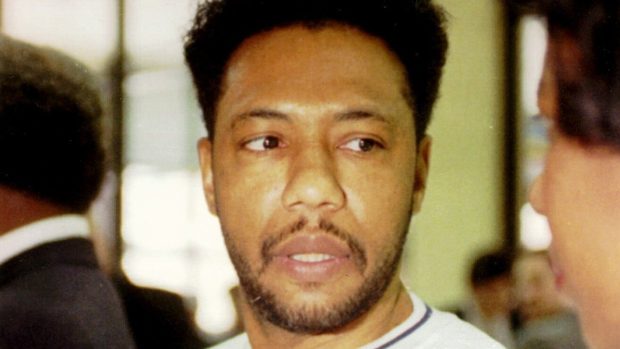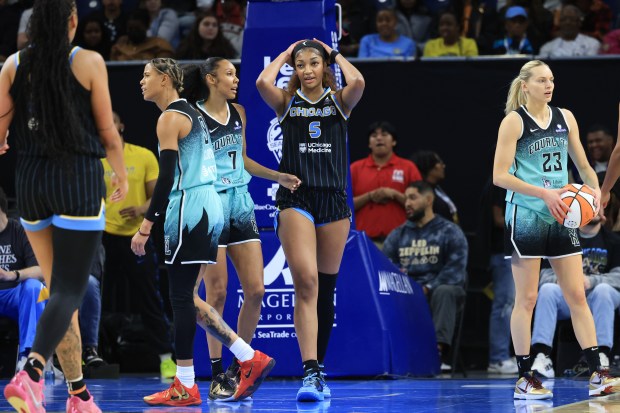Attorneys for ex-Illinois House Speaker Michael Madigan have compiled years’ worth of unflattering press about the political powerhouse in hopes that a judge will let them examine potential jurors more closely at Madigan’s racketeering trial.
“For at least the past two decades, the press coverage of Madigan has bordered on obsession,” defense attorneys for Madigan and co-defendant Michael McClain wrote in a filing late Monday, calling the coverage “intense and grossly unfair.”
The filing repeatedly complained about stories by the Tribune, including the ongoing “Culture of Corruption” series examining how self-dealing has been embedded in Illinois politics for generations. The filing insinuates strongly that the series must have been timed to undermine Madigan’s case.
Defense attorneys used Monday’s motion to reiterate requests they have already made to U.S. District Judge John Robert Blakey: They want permission to review prospective jurors’ social media posts, and they want to question potential jurors about what they may have seen or heard about Madigan in greater detail than standard procedure usually allows.
The trial is slated to begin Oct. 8. Madigan, 82, is charged in a 23-count indictment alleging he participated in an array of bribery and extortion schemes from 2011 to 2019 aimed at using the power of his public office for personal and political gain.
Also charged was McClain, 76, a former state legislator and lobbyist who was convicted last year of orchestrating an alleged bribery scheme by Commonwealth Edison. McClain’s sentencing in that case is pending; his attorneys want the case thrown out entirely given a U.S. Supreme Court ruling this year that upended part of a commonly used anti-corruption statute.
But the bulk of the publicity that defense attorneys complained about centered on Madigan, who spent decades at the top of the Springfield hierarchy and statewide Democratic politics.
The coverage – along with attack ads from Republican opponents – cemented Madigan’s image as an iron-fisted boss who derived power from a political machine, an image that could be hard for potential jurors to shake, the filing wrote.
Federal prosecutors have already brought related cases to trial, including the “ComEd Four” case involving McClain and the perjury trial of longtime Madigan ally Tim Mapes.
Evidence and court filings in those cases were reported on extensively, including testimony by a retired FBI agent that Madigan ran his political operation like a mob boss. And before any of them went to trial, news outlets found out the salacious details in the investigation against FBI cooperator and ex-Chicago alderman Danny Solis, sparking “a continuous, ongoing press frenzy involving Madigan that has often read strikingly similar to the political attack ads.”
The pretrial filings in Madigan’s case have also been written about at length; Tribune journalists, who have no obligation to hide the details of publicly available records, recently described a wiretapped recording that Madigan’s attorneys are trying to prevent jurors from hearing. That seemed to particularly draw the defense attorneys’ ire.
“The pretrial publicity has presented unsupported, negative spin on the exact information at issue in this case and spread speculation and misinformation that will likely not be admissible at trial,” the filing states.
Blakey has not yet ruled on the defense’s request to review potential jurors’ social media posts; in a hearing earlier this year, he seemed skeptical that it could be done efficiently.
“The defendant is entitled to a fair trial, not every question possibly asked under the sun,” he said from the bench in July. “… At some point you have to presume some honesty on the part of the jury.”





